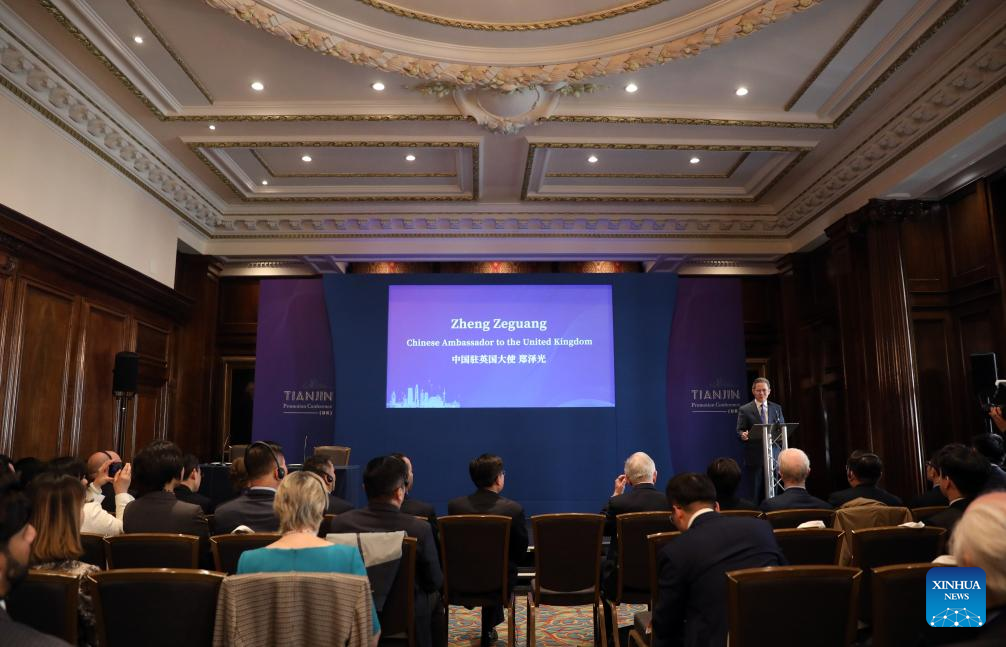
China's firm opposition and countermeasures to the United States' (U.S.) so-called "reciprocal tariffs" are aimed not only at safeguarding its own national interests, but also at defending the multilateral trading system and upholding international justice, said Chinese Ambassador to the United Kingdom (UK) Zheng Zeguang on Thursday.
The ambassador made the remarks at an investment and business promotion event for China's northern port city of Tianjin, held in central London.
The U.S.' so-called "reciprocal tariffs" imposed on all its trading partners, including China and the UK, are "in flagrant violation of WTO rules, and a reckless act of unilateralism, protectionism and trade bullying," said Zheng.
"It has dealt a devastating blow to the multilateral trading system and the global economy, seriously undermining the interests of all countries."
Over the past few days, Washington has sent confusing signals, announcing high tariffs on some Asian countries while stating they would substantially reduce tariffs on China, likely using this gimmick to mitigate self-inflicted losses and influence the capital market, the ambassador pointed out.
The ambassador reiterated China's stance that from day one, tariff and trade wars have no winners, emphasizing that China does not seek war but is not afraid of it, and would fight if necessary.
Stressing that China's doors remain open if the U.S. wants to talk, Zheng said: "But at the moment, there is no negotiation happening between China and the U.S."
He added that any dialogue should be based on equality, mutual respect, and shared benefit, and urged the U.S. to abandon its "maximum pressure, threats, and blackmail."
Zheng also called on the international community to show solidarity and act together against unilateralism and trade bullying.
"Appeasement or caving in will simply invite more trouble and embolden the bully," he warned.
The ambassador also expressed his hope that the UK, with its long tradition of championing free and open trade, would stay on the right side of history, supporting multilateralism and aligning with the majority of the international community on this major issue of principle.











